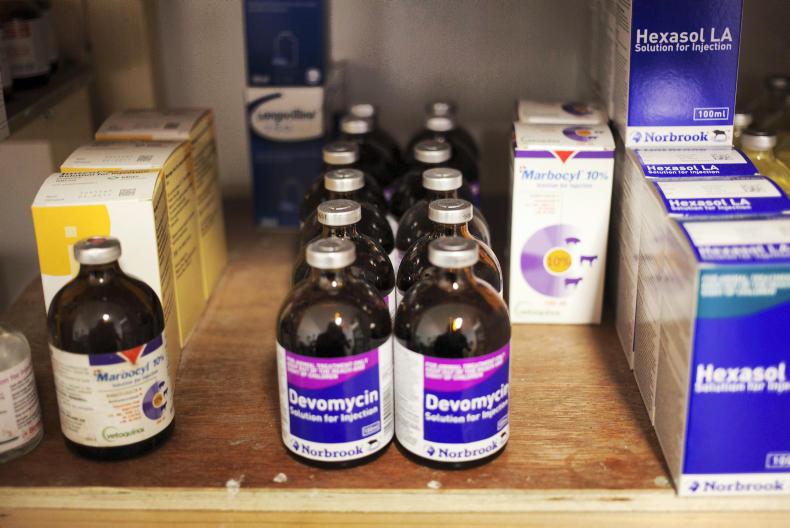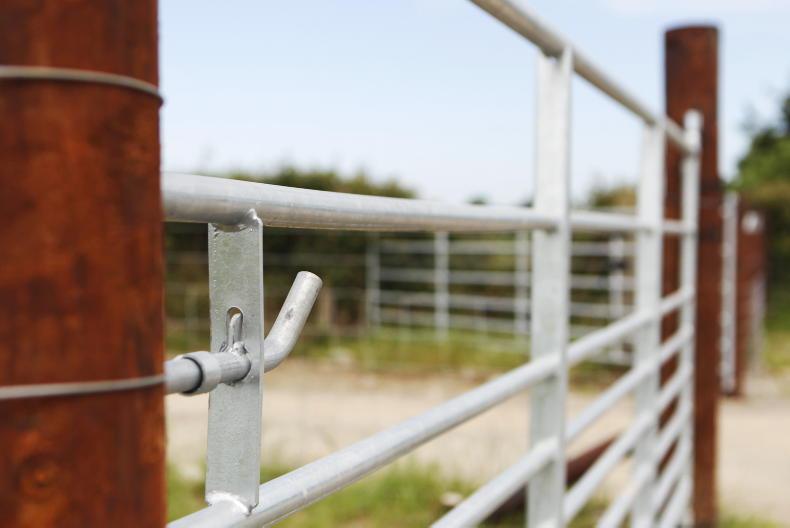Minister for Agriculture Michael Creed took the opportunity of European Antibiotics Awareness Day to explain to farmers that antimicrobial resistance (AMR) is threatening the future of antibiotics.
AMR occurs when microbes that could previously be killed by antibiotics are no longer susceptible because they have developed a resistance to the drugs.
"Antimicrobial reistance is being increasingly recognised as one of the world's biggest problems in terms of human health," Creed said.
"A recent UK study suggests that AMR will be the leading cause of death in humans by 2050, making it a greater threat than cancer."
All of us, including Government, the pharmaceutical industry, the veterinary profession, and farmers have a role to play
Creed said the issue of AMR is relevant to farmers because there needs to be collaboration across the human, veterinary and environmental sectors if AMR is to be tackled: "All of the major international plans for dealing with AMR support a one-health approach urging collaboration across the human, veterinary and environmental sectors," he said.
"Therefore, we must all play our part. Insofar as the agriculture sector is concerned, all of us, including Government, the pharmaceutical industry, the veterinary profession, and farmers have a role to play."
We must all in the agri-food industry play our part in conserving this resource by using antibiotics prudently
The minister acknowledged that antibiotics are necessary for the agriculture sector in order to prevent and control disease and ensure that healthy animals enter the food chain.
"Therefore, we must all in the agri-food industry play our part in conserving this resource by using antibiotics prudently. By this I mean as little as possible and as much as necessary.”
Minister Creed asked farmers to remember the four Rs – right animal, right drug, right dose, right duration.
Seminar
The Department of Agriculture is holding a seminar on Wednesday 30 November in the Mullingar Park Hotel entitled "Antimicrobial resistance – what can farmers do?".
The seminar aims to continue the dialogue between relevant stakeholders on what actions need to be taken to address the problem of antimicrobial resistance in order to ensure that antibiotics remain effective in the future.
McDonalds and antibiotics
Meanwhile, one of the shareholders in McDonald's, the Congregation of Benedictine Sisters of Boerne, Texas, has asked directors at the global fast-food chain to prohibit the use of medically important antibiotics in its global poultry supply chain, according to Reuters.
McDonald's already has adopted that policy for the chicken served in its US restaurants.
The group is also asking the fast-food chain to set global targets and timelines for switching to pork and beef raised without the use of medically important antibiotics for non-disease-related purposes.
Reuters says the sisters aim to have shareholders vote on the new proposal at McDonald's 2017 annual meeting.
Read more
Use of veterinary antibiotics in Europe decreases
Minister for Agriculture Michael Creed took the opportunity of European Antibiotics Awareness Day to explain to farmers that antimicrobial resistance (AMR) is threatening the future of antibiotics.
AMR occurs when microbes that could previously be killed by antibiotics are no longer susceptible because they have developed a resistance to the drugs.
"Antimicrobial reistance is being increasingly recognised as one of the world's biggest problems in terms of human health," Creed said.
"A recent UK study suggests that AMR will be the leading cause of death in humans by 2050, making it a greater threat than cancer."
All of us, including Government, the pharmaceutical industry, the veterinary profession, and farmers have a role to play
Creed said the issue of AMR is relevant to farmers because there needs to be collaboration across the human, veterinary and environmental sectors if AMR is to be tackled: "All of the major international plans for dealing with AMR support a one-health approach urging collaboration across the human, veterinary and environmental sectors," he said.
"Therefore, we must all play our part. Insofar as the agriculture sector is concerned, all of us, including Government, the pharmaceutical industry, the veterinary profession, and farmers have a role to play."
We must all in the agri-food industry play our part in conserving this resource by using antibiotics prudently
The minister acknowledged that antibiotics are necessary for the agriculture sector in order to prevent and control disease and ensure that healthy animals enter the food chain.
"Therefore, we must all in the agri-food industry play our part in conserving this resource by using antibiotics prudently. By this I mean as little as possible and as much as necessary.”
Minister Creed asked farmers to remember the four Rs – right animal, right drug, right dose, right duration.
Seminar
The Department of Agriculture is holding a seminar on Wednesday 30 November in the Mullingar Park Hotel entitled "Antimicrobial resistance – what can farmers do?".
The seminar aims to continue the dialogue between relevant stakeholders on what actions need to be taken to address the problem of antimicrobial resistance in order to ensure that antibiotics remain effective in the future.
McDonalds and antibiotics
Meanwhile, one of the shareholders in McDonald's, the Congregation of Benedictine Sisters of Boerne, Texas, has asked directors at the global fast-food chain to prohibit the use of medically important antibiotics in its global poultry supply chain, according to Reuters.
McDonald's already has adopted that policy for the chicken served in its US restaurants.
The group is also asking the fast-food chain to set global targets and timelines for switching to pork and beef raised without the use of medically important antibiotics for non-disease-related purposes.
Reuters says the sisters aim to have shareholders vote on the new proposal at McDonald's 2017 annual meeting.
Read more
Use of veterinary antibiotics in Europe decreases










SHARING OPTIONS